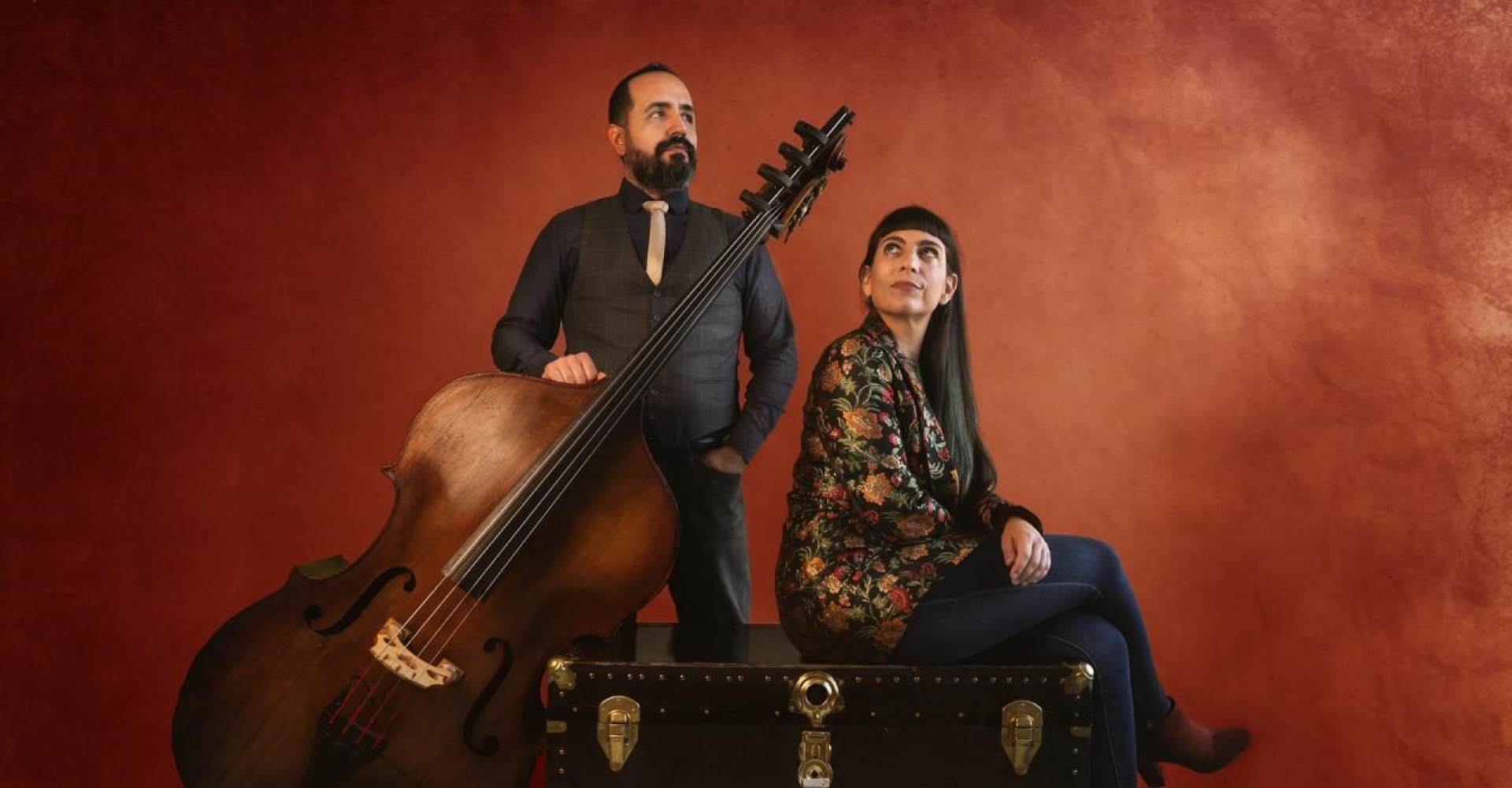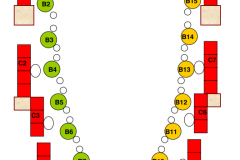Sofia Rei and Jorge Roeder
Mo | Tu | We | Th | Fr | Sa | Su |
Deep from the corners of the Pan-American repertoire, Argentine vocalist Sofia Rei and Peruvian bassist Jorge Roeder delve into the hidden gems of the lore. With uncanny skills and gripping emotive range, they bring songs to life in this all-acoustic duo setting. These Grammy nominated musicians, whose collaboration spans almost 20 years, revisit compositions by iconic writers such as Noel Rosa, Pixinguinha, Nicomedes Santa Cruz, Chabuca Granda and Thelonious Monk. They thrive in the immense variety of musical styles that emerged in the americas since the late 19th century, in Spanish, Portuguese and English.
Neither folkloric nor avant-garde, straight ahead or Latin jazz, Coplas Escondidas is a singular creation by two of the foremost cosmopolitan improvisers on the international jazz scene. This duo project celebrates the depth of Latin American song forms, and it’s wonderfully original – unlike anything in their varied discographies.
Seizing a moment afforded by the pandemic shutdown, Rei and Roeder met up in Brooklyn at Mark Goodell's studio for a musical communion drawing on two decades of oft-intersecting exploration. Coplas Escondidas continues a creatively charged musical conversation between two longtime friends and intermittent collaborators who’ve been influencing and inspiring one another since they met two decades ago at New England Conservatory. The songs and rhythmic settings span South America, drawing on an array of styles and traditions interpreted through an improvisational jazz ethos.
A classically trained mezzo-soprano, Rei has earned numerous awards and widespread esteem with five albums under her own name, most recently 2021’s electronica-laced Umbral. But she’s equally hailed for her collaborations with masters such as guitarist Marc Ribot, vocal wizard Bobby McFerrin, composer/arranger Maria Schneider, and, most prolifically, John Zorn, including 2018’s acclaimed, The Book Beri'ah: Keter, with JC Maillard. Born and raised in Buenos Aires and based in New York since 2005, Rei was singled out by the Boston Globe for “possessing a voluptuously full voice, comprehensive command of Latin American rhythms, and encyclopedic knowledge of folkloric forms from Argentina, Peru, Colombia, and Uruguay.”
Like Rei, Jorge Roeder is a conservatory- trained artist who was only 20 when the Lima Philharmonic and Opera orchestras appointed him assistant principal bassist in 2001 (while he also played electric bass with the Lima heavy metal band Ni Voz ni Voto). Since moving to the U.S. to study at NEC in 2002, he’s forged deep and lasting ties to several extraordinary artists, performing widely and recording with saxophonist/composer John Zorn, guitarist Julian Lage, Israeli-born pianist Shai Maestro, and trombonist Ryan Keberle. Among the busiest bassists in jazz, he’s also collaborated with vibes legend Gary Burton, guitarist Nels Cline, vocalist Thana Alexa, guitarist Brad Shepik, and saxophonist Dan Blake, among many others. (Pressetext)
Program and cast
Sofia Rei: vocals, loops, charango, caja vidalera
Jorge Roeder: bass
PORGY and BESS Jazzclub
Porgy & Bess (actually, Jazz and Music Club Porgy & Bess ) is a jazz club in the Riemergasse 11 in the 1st district of Vienna. The club , founded in 1993 is considered " the most important jazz organizer and trendy meeting point " of the Austrian capital .
The program of Porgy & Bess speaks to a very large audience , about 70,000 guests a year ; is accordingly Jazz " understood very pluralistic ," and the program " even in fringe areas , such as electronic music , contemporary music and world music penetrated . " Many international artists , particularly from the U.S. space , see also Austrian musician here an opportunity to perform . The club also offers the stage for events, such as the award of the Austrian World Music Award.
Musicologist Christian Scheib According to the Porgy & Bess " at the same time essential for the development of the musical ( jazz ) reality of a City" and needs and uses ' plain commonplace as urban space music. " It creates itself " through artistic preferences, acoustic quality , capacity and real capacity, the necessary exclusion of other clubs. " Here, the different areas of the jazz clubs allow - the area in front of the stage with tables, upstairs gallery , a lateral area with a bar at counter - different intense concentration on the concert scene . For Jazzthetik Porgy & Bess is even a " traditional club . "

 EN
EN DE
DE IT
IT FR
FR ES
ES RU
RU JP
JP RO
RO
 Seating plan
Seating plan 